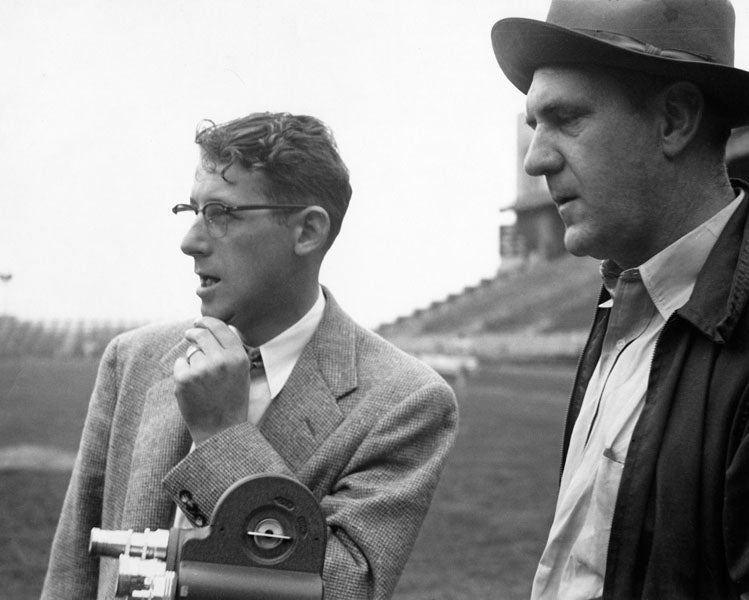CULLEY, PAUL EUGENE (18 June 1924 – 12 Jan. 2016) was an influential employee, and eventual president, of CINECRAFT PRODUCTIONS, a SPONSORED FILM studio in Cleveland for his entire career. The youngest of four children of Carl and Mary Culley, Paul was born in Norwalk, Ohio, in 1924. When RAY CULLEY, his brother and the co-founder of Cinecraft, retired in 1970, Paul bought the studio and was President from 1970 to 1986. Paul was responsible for leading Cinecraft from the film age to the video age.
In 1942, when Paul was a senior in high school, Ray asked him to work at the studio. Cinecraft had a contract with the Navy to make training films on Destroyer Escorts. Ray was hoping employing Paul would keep him from being drafted into WORLD WAR II. Paul began as an assistant on a training film on a Navy ship based in Florida. In spite of his brother’s effort to keep him out of the draft, Paul received orders in June 1943 to report for duty. Ray wrote a letter to the draft board appealing the induction notice. The draft board wrote back saying they didn't think a non-high school graduate could have unique skills to keep him from being drafted.
Paul trained as a crew chief engineer on a Boeing B-17 Flying Fortress, a four-engine heavy bomber. After graduation, he was a serial gunner in a heavy bombardment group flying B-17s in the Mediterranean theatre, flying from a base in Foggia, Italy.
On his first operational mission in Europe, 20 Oct. 1945, Paul’s plane took intense anti-aircraft fire over Linz, Austria. The aircraft was able to fly on to Yugoslavia before the crew had to bail out. Paul and several crew members were rescued by Yugoslav Partisans. For six weeks he was kept moving to avoid capture before making it to the coast to return to his base in Italy.
On Paul’s seventh operational mission, 27 Feb. 1945, his plane sustained engine and propeller damage over the Augsburg marshaling yards in Germany. The crew bailed out about 40 miles from Switzerland. The plane continued on and crashed in a farmer’s field in Switzerland. Paul fractured his leg when he landed. He was captured and served out the remaining months of the war in Stalag 3, a prisoner of war camp near Mainz, Germany.
In 1945, Paul returned to Cinecraft, starting in the sound department and working his way up to running the company.
The combination of air pressure changes and 50 caliber machine gun noise damaged Paul's high frequency hearing. However, it helped him become an excellent sound engineer because 16mm film soundtracks have a limited frequency. He could "naturally" evaluate them during mixing and release.
Paul was the sound manager on many of the studio's most challenging films, including Milestones of Motoring (1954). The movie is notable for the talent in the film: comedian Joe E. Brown; television show host and media mogul Merv Griffin in his first acting role; and Rita Farrell. The movie also stands out for the technical challenges Paul overcame in recording the actors singing in lip-synch as they drove through Cleveland's metropolitan park. Griffin and Farrell sing three popular car songs in the movie - “Merry Oldsmobile,” “Get Out and Get Under,” and “Ain’t She Sweet.”
Paul directed two of Cinecraft's most historically significant films: The Long Ships Passing (1960), a film about the unique ships that carry cargo on the Great Lakes, and C-5 Galaxy: World’s Largest Aircraft (1967).
In 1986, Paul and his wife, Christine Hofstetter Culley (1 Dec. 1921 - 19 Nov. 2016), sold Cinecraft to Maria Keckan and Neil McCormick. Paul and Christine had five children and lived most of their lives in BAY VILLAGE, OHIO. They are interred in the Mausoleum at St Joseph Cemetery in Avon, Ohio.
Jim Culley


